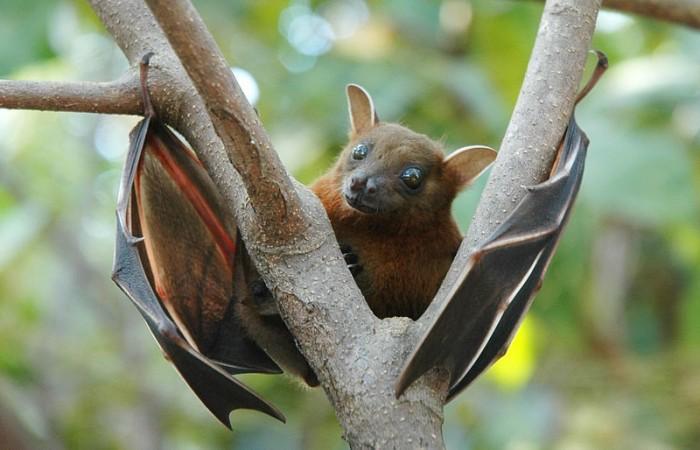
An outbreak of a deadly virus has made Guinean officials to ban the consumption of grilled bat, bat soup and other such local delicacies.
Ebola virus that spreads the deadly disease has claimed about 63 lives in the region of Guinea, located in West Africa on the Atlantic Ocean.
"We discovered the vector [infectious] agent of the Ebola virus is the bat. We sent messages everywhere to announce the ban. People must even avoid consumption of rats and monkeys. They are very dangerous animals. Bloomberg News quoted Remy Lamah, the country's Health Minister as saying.
Ebola is a kind of haemorrhagic virus that spreads the disease through bodily fluids and causes fever, vomiting, diarrhea including external and internal bleeding. There is no cure or vaccination available to treat the disease and is often fatal, according to the National Institutes of Health.
Medical specialists believe that animals carry the Ebola virus naturally and previous records state that the disease has been transmitted to human through gorillas, chimpanzees and monkeys. Mammals such as bats can host the virus, but may not necessarily show any symptoms of the disease.
In Guinea, some ethnic like Toma, Guerze and Kissi groups consume bats regularly in various ways, as reported by BBC news. Bats are often boiled in a soup or grilled over an open flame.
In the recent years, bats have come under increased scrutiny because of their strange ability to host zoonotic viruses, that spread from species to species.
The flying mammals are host for over 60 viruses that has the capability to infect humans and can host more viruses than even rodents.
Other than Ebola virus, bats can spread rabies, histoplasmosis, Nipah, SARS, Marburg, Lyssaviruses, Hendra and other diseases, according to the Center for Disease Control and Prevention (CDC).

















